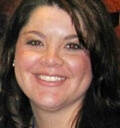
My initial thought was, “Maybe none.” As I prayed about how to respond, God reminded me of two incidents that changed my own thinking and more importantly, my heart. Some years ago, I was working for a Christian ministry that was hosting a conference on biblical sexuality. Sounds somewhat innocuous, but as it turns out saying that people can find freedom from a life dominated by same-sex attraction through Jesus is rather controversial. The press heavily covered the event and so news of a protest from the gay community came as no surprise. The day of the conference arrived and so did a noisy group of around 200 young people carrying signs and chanting through a bullhorn, “Hey, hey, ho, ho, homophobia’s got to go” and “Two, four, six, eight, stop the lies and stop the hate.” As the day wore on and the chanting subsided, I pushed past my fear and walked up to a group of young people at the picket line. I had no idea what I was going to say or do. My head was reeling with arguments and sound bites to defend biblical truth to these poor, misguided souls.
Looking every bit the straight-laced, non-denominational conservative that I was, I began to ask questions about their lives. “Do you go to college? What’s your major? Where are you from? Do you like living here?” Though suspicious, they humored me and responded. Eventually, one 20-something student and I began to connect. I sensed a lost yet hungry look in his eyes as he told me about the classes he was taking and the goals he had for his life. We talked for quite awhile and I still wanted to know more, but the group leader yelled through the bullhorn that it was time to move on and he shuffled past me in compliance and reticence. I was truly sad to see him go. I’ve thought of him many times since then and wonder where he is now. For a moment, God allowed me to see this young man through His eyes. And in that moment, while my body was on one side of the picket line, my heart was most certainly on the other.
This past summer, I was at another conference, an annual event our ministry puts on to offer support to those whose lives have been impacted by the issue of homosexuality in some way. Nearly a thousand individuals from across the country and around the world came to Chicago to hear messages of hope and freedom, but more than a hundred came for another reason – to protest us for “preaching hate.” It was an angry group as protests go. As I stood there, surveying the police perimeter and sizing up the situation, an unusually tall man, dressed as a transvestite with gaudy makeup, matted hair and statement-making clothes, caught my eye. He would have stood out anywhere, but amid the throng of protestors and abrasive signs, something more jumped out at me. It was the years of inner torment and woundedness that were etched on his face. It melted my heart and I began to cry for him and for this group of hurting men and women. I had to turn away so they could not see my face. When the dust settled and they began to leave, I went out to talk to the police officers. One of the more vocal members of the group began to look for a trashcan. Sheepishly, she said to me, “I guess I shouldn’t just leave this here.” This was my moment to connect. I could have told her that she had it all wrong, that we didn’t believe in hate, that Jesus loved her, but instead, I held out my hand and said, “I’ll take it for you.” She looked at me with surprise, handed me her Starbucks cups and her “Hate is not a family value” sign and shuffled off.
Sometimes what you don’t say is more important than what you could. For the heart that is hurting, the best sound bites and the most articulate arguments may not help at all. While politics and social issues do matter, they matter only because people do. I pray often that God gives me eyes to see beyond the rhetoric to the condition of the hearts of those around me – whatever life they may be living, whatever political or social positions they may hold, whatever opinions and beliefs they may happen to have. Love is what defines a believer and sometimes modeling it may not include talking points at all.
Julie Neils is the Senior Director of Media Relations for Exodus International, the world’s largest ministry helping those conflicted by their sexuality to live a life that reflects the Christian faith.












